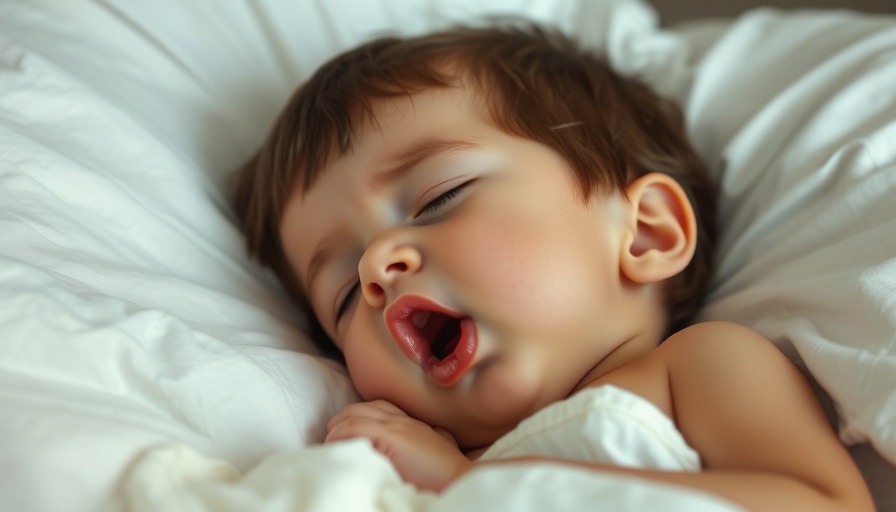
Understanding the Hidden Dangers of Sleep Apnea
Sleep apnea, a condition characterized by repeated interruptions in breathing during sleep, poses significant health risks, especially in children with existing health issues like epilepsy. A recent study has raised alarms regarding an increased risk of sudden cardiac arrest in these young patients, highlighting a need for greater awareness and intervention in health practices.
Link Between Sleep Apnea and Cardiac Risks in Epileptic Children
According to new research, children with epilepsy face heightened threats from sleep apnea, which is characterized by sleep disruptions due to airway blockages. The connection between these two conditions is alarming, as studies indicate that sleep apnea can lead to sudden cardiac arrest—an unexpected event that can occur without warning. Children with epilepsy may already experience vulnerabilities related to their condition, making this intersection of ailments alarming.
The Broader Implications for Health and Wellness
The findings not only affect families impacted directly by epilepsy but also shed light on broader health and wellness considerations. Effective health care in communities—like those in San Antonio—should be geared towards early diagnosis and intervention strategies that include regular screenings for sleep apnea in children with neurological conditions. This proactive approach could potentially save lives and enhance the overall health and wellness profile of affected communities.
What Can Be Done?
Awareness is the first step in addressing this serious health issue. Communities can mobilize to promote events that educate families about the signs of sleep apnea, especially in vulnerable populations like children with epilepsy. Health and wellness centers can provide resources, sponsor workshops, and facilitate screenings. Furthermore, natural therapies and lifestyle changes, such as weight management and better sleep hygiene, can improve a child's health.
Risk Factors and Health Management
Beyond just the immediate risks, understanding the long-term implications of untreated sleep apnea is vital. Parents and guardians should consult health professionals to assess sleep patterns, weight, and other potential contributing factors to sleep apnea. Naturopathy offers holistic approaches that may aid in managing these conditions integratively. For instance, introducing herbal supplements or exploring naturopathic treatment options could augment traditional pediatric care.
Support and Resources for Affected Families
Families can benefit from community health and wellness programs that offer educational seminars regarding pediatric sleep disorders and their management. Creating a network within the health and wellness landscape—such as support groups in San Antonio focusing on epilepsy and sleep apnea—will aid families not only in gaining valuable insights but also by providing community backing through shared experiences.
The Path Forward: Why This Matters
As we learn more about the links between sleep apnea and disorders like epilepsy, it calls for a systematic push toward optimal health and wellness practices. The implications of these findings are vast, opening new paths toward preventive care, lifestyle changes, and the embracing of holistic health approaches that include both natural remedies and traditional medicine. Ensuring that children receive safe, healthy living environments will lead us toward better health outcomes.
In conclusion, the alarming rise of cardiac events linked with sleep apnea in children with epilepsy necessitates immediate attention and action from families, health professionals, and communities. With informed health and wellness strategies, empowering families and encouraging proactive discourses, we can collectively reduce risks and improve the well-being of our children.
 Add Element
Add Element  Add Row
Add Row 




Write A Comment